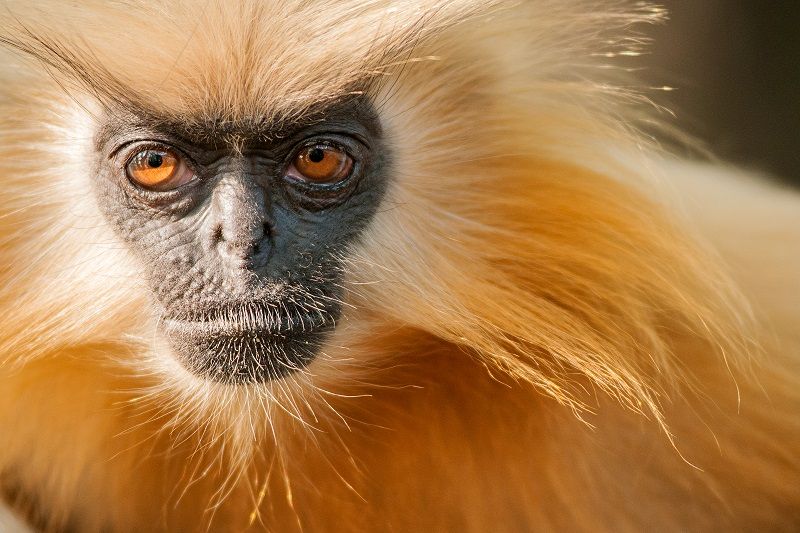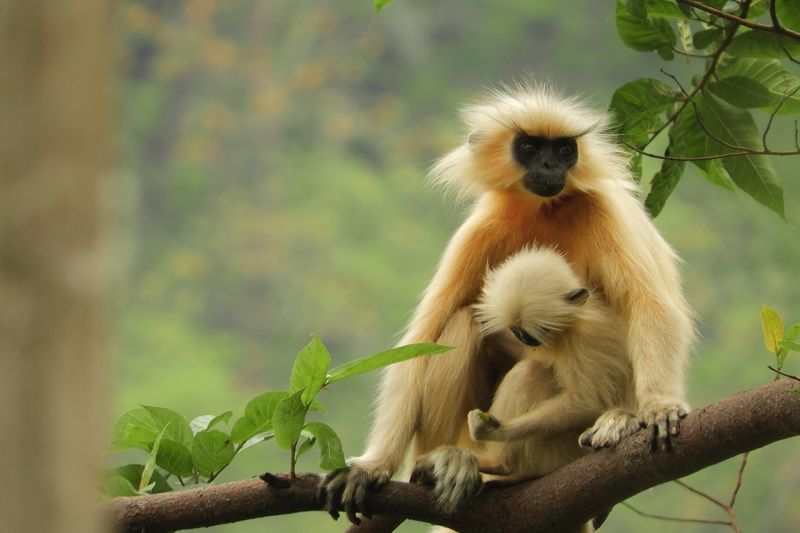Helping the golden langurs of the forests of India

These striking creatures are listed as one of the 25 most endangered primates in the world by the IUCN.
Funding for this project has now finished
India’s rarest monkeys face a bleak future
Golden langurs are incredible creatures found only in the forests of India and Bhutan. Their stark black hands and faces contrast sharply with their cream-coloured fur which glows gold under the sun. They’re one of the 61 species of colobine monkeys, found across Africa and Asia. Each species has striking colouring, whilst some also sport unusual facial features ranging from bulbous noses to pink lips and what looks like theatrical eye make-up.
Sadly, golden langurs are now severely threatened. Their numbers in Bhutan have dropped by more than 60% than previously thought in just over three decades. In India over half their habitat has been destroyed in the last few decades. As a result, the IUCN Primate Specialist Group listed golden langurs as one of the ’25 most endangered primates in the world’ in 2016-18 and again in 2018-2020. These monkeys need our help. Luckily we have a partner in India who has successfully worked on primates for years. Jihosuo Biswas, from the Primate Research Centre in NE India, has a plan to halt their decline.
In India, golden langurs are found in one region, penned in by three rivers: Sankosh in the east, Manas in the west and Brahmaputra in the south. Very little of their range is in protected forests. Just over ten years ago it was thought there were about 6000-6500 golden langurs in this region, but since then their forest home has been continuously depleted. What’s more, the remaining groups have become isolated from each other. If individuals cannot move between groups, then they become even more vulnerable and at greater risk of extinction. Jihosuo’s earlier work shows that fewer babies are born in these fragmented groups and mortality rates are higher. Up until now, these langurs have been neglected by the authorities. They need an action plan to ensure their numbers stabilize and then increase.

Putting primates back on the map
Jihosuo and his team will gather all the information they need about golden langurs in Assam including; what their true numbers are, which areas are critical for them and what are the main threats they face. Thankfully he also has the support of the Forest Department, which will use Jihosuo’s data to give the langur habitat better protected status. The Forest Department staff will respond with immediate management intervention in degraded and isolated areas. In response to an earlier study the team carried out, Manas National Park was extended to give protection to a greater area of forest. Now, with newly gathered information, Jihosuo will be calling for other forest to be upgraded to the status of Protected Areas.
As always, it’s important to include local communities as they’re the ones living alongside wildlife and sharing the same resources. Jihosuo knows he needs to make them care about the future of golden langurs too and plans to make the langurs a flagship species of the region. By training up locals to engage with the monitoring, they’ll have a vested interest in the success of the project. Eco-tourism will be a real possibility in the future which will help bring increased revenue to the area.
Over the past decade PTES has supported Jihosuo’s work on the hoolock gibbon in the same region. Now we’re entrusting him to give the same help to one of the 25 most endangered primates in the world.
Thank you to all our donors who helped us fund this work. You can help us support more projects like this with a donation today:
